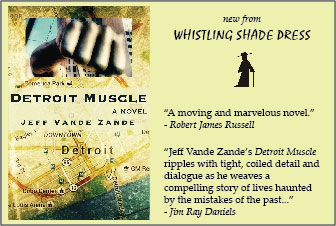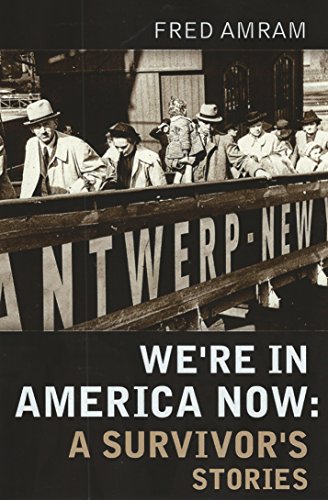
| <- Back to main page |

|
(Holy Cow! Press)
What to expect when a book opens with a dedication to the author’s cousin, who was slain in the Holocaust, and all the children butchered in genocides? Certainly a book that is soulful, tragic and painful to read. But Fred Amram’s collection of episodic memoirs, We’re in America Now: A Survivor’s Stories, is not simply a tragic account of Holocaust experiences. Yes, he was born in Germany during the 1930s and experiences the events of that time in his early childhood. But the story soon changes as young Manfred from Hanover becomes Fred in New York City, USA. Rather than simply being the story of survival of the Holocaust, Fred Amram’s collection encompasses coming-of-age vignettes, the experiences of a young immigrant, as well as tales of mid-Century American Anti-Semitism.
“I was born in a Catholic infants shelter,” Amram writes in the first chapter, “My birth certificate has the signature of a nun. Not just any run-of-the-mill nun. The illegible signature shows a clear title underneath: Mother Superior.”

Why would a Jewish baby be born in a Catholic shelter? Because in 1933, Adolf Hitler had already prohibited the Jews from using public hospitals. This mundane fact is one of the many degradations that probably don’t show up in an average history book but come to light in memoir. And such details are the strength of Amram’s stories. They are intensely personal, presented in frank, straightforward prose with a storyteller’s verve. Indeed the chapters are short and almost conversational in their clarity and lack of pretension.
After the harrowing stories about his early upbringing in Hanover, Amram details the experiences of his New York City childhood and indeed, these stories make up the meat of the book. He writes with great directness about the conditions that the Amrams found themselves in upon arriving in America, as his parents work to better their circumstances. In one sense, the immigrant family’s story had only begun. They were to grapple with the guilt of being survivors, with the struggle to adapt to a new society while retaining their Jewish identity and even, in young Fred’s case, to fight bullies of every stripe in the streets and schoolyards of New York City.
The stories themselves, many of which are published in various magazines (including Whistling Shade) before this volume, hang together well as a collection. Characters recur in an orderly way but the accidents of real life intrude—A Survivor’s Stories never feels novelistic or predictable. And though periodically returning to the meaning of the Holocaust in his life, the author is not afraid to connect the bigotry of those times to the anti-Semitism encountered in the USA or to the racism he sees in mid-century America. After adolescence, Amram covers the rest of his life in broad strokes but writes with candor about his family after he has become an adult.
It’s hardly all struggle: There are romantic interludes, school memories, reminisces of the World’s Fair and even, later in life, the tumultuous 1968 Democratic Convention in Chicago. Amram’s teenaged behavior is not sanitized, and his youthful guilt is both poignant and a little funny. But all of these experiences are funneled through the vision of an immigrant searching for identity. In the chapter examining his college life, he writes, “Deciding on a major or minor program of study is, suddenly, not my most urgent problem. Finding my place in the world is my priority. Living with hyphens requires all my attention. Jewish-American, German-American, Jewish-German (or is it German-Jew or American-Jew?), victim-survivor (survivor-victim?), boy-man…”
Amram’s book serves as a reminder that such categories are useful to explore our experiences but ultimately unsuited to the task of defining our full humanity—whether such labels are imposed from within or without.
- Julian Bernick